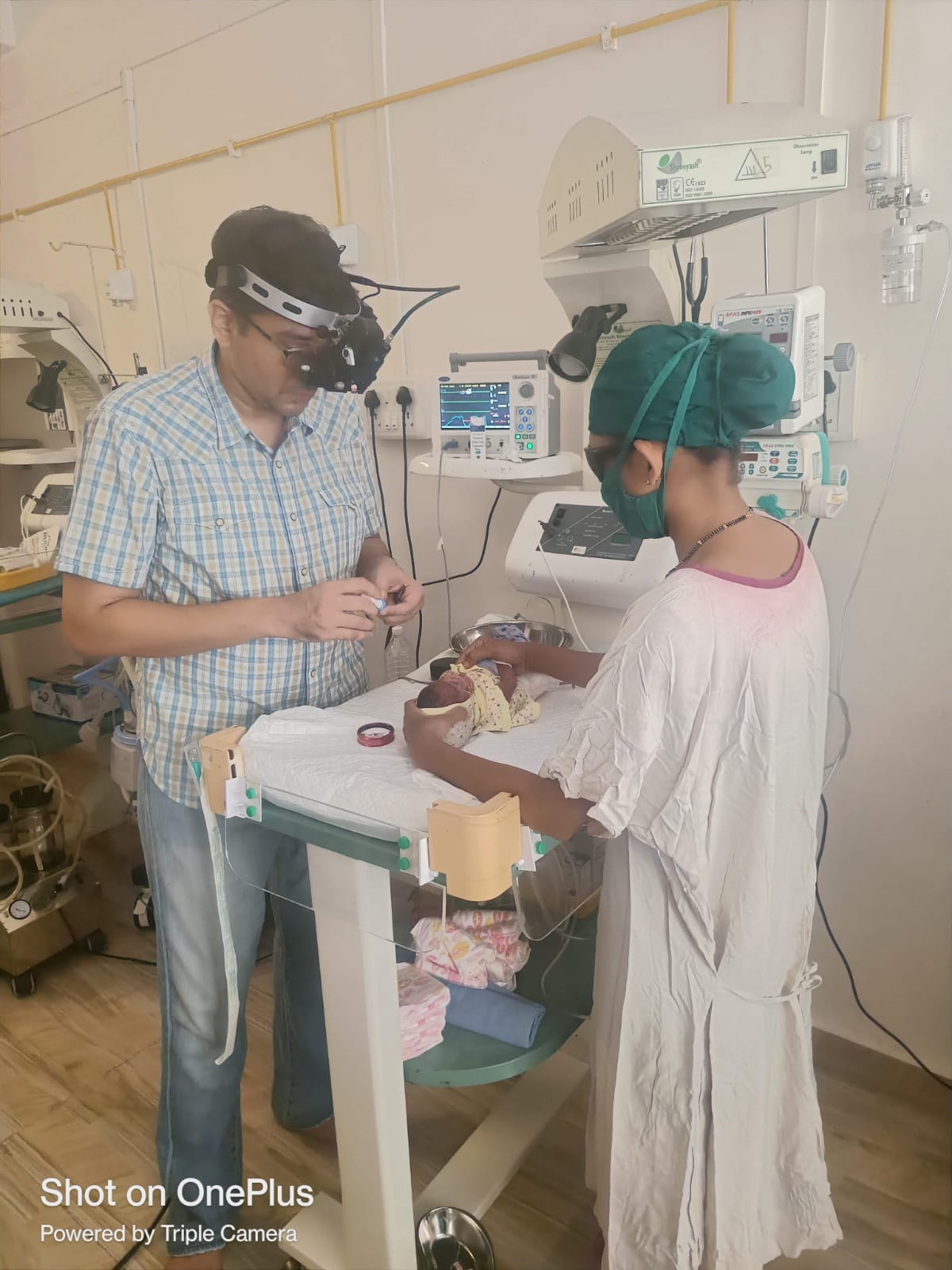ROP Screening & Treatment
ROP (Retinopathy of Prematurity) is a potentially serious eye disorder that primarily affects premature infants. It occurs when abnormal blood vessels develop in the retina, the light-sensitive layer at the back of the eye. ROP is more common in very low birth weight infants and those born before 31 weeks of gestation.
ROP Screening:
-
Timing of Screening:
- Premature infants, especially those born at or before 30 weeks of gestation or with a birth weight of less than 1500 grams, are at higher risk for ROP.
- Screening typically begins around 4 to 6 weeks after birth or when the baby reaches a certain postmenstrual age.
-
Ophthalmologic Examination:
- An eye specialist, usually a pediatric ophthalmologist, will perform a dilated eye exam to examine the blood vessels in the retina.
- The doctor will use an indirect ophthalmoscope to carefully examine the retina.
-
Stages of ROP:
- ROP is categorized into stages ranging from mild to severe, and the severity determines the need for treatment.
- Regular follow-up exams help monitor the progression of ROP.
ROP Treatment:
-
Laser Therapy (Photocoagulation):
- Laser treatment is often recommended for advanced stages of ROP to stop the abnormal blood vessels from growing.
- The laser creates small burns in the peripheral retina to reduce the oxygen demand and prevent the growth of abnormal vessels.
-
Cryotherapy:
- In some cases, especially when laser therapy is not feasible, cryotherapy (freezing treatment) may be used to destroy abnormal blood vessels.
-
Anti-VEGF Medications:
- In certain situations, intravitreal injections of anti-VEGF (vascular endothelial growth factor) medications may be considered to inhibit the growth of abnormal vessels.
-
Surgery:
- In severe cases, surgery may be necessary. This could involve removing scar tissue or addressing retinal detachment.
-
Follow-up Care:
- Regular follow-up exams are crucial to monitor the response to treatment and assess the overall eye health of the child.
It's important to note that not all cases of ROP require treatment. Many premature infants who develop ROP will experience spontaneous regression without intervention. The decision to initiate treatment is based on the specific characteristics and severity of ROP identified during the screening exams.
Parents of premature infants should work closely with their neonatologists, pediatricians, and pediatric ophthalmologists to ensure timely and appropriate ROP screening and treatment if necessary. Early detection and intervention play a key role in preventing vision impairment or blindness associated with ROP.

